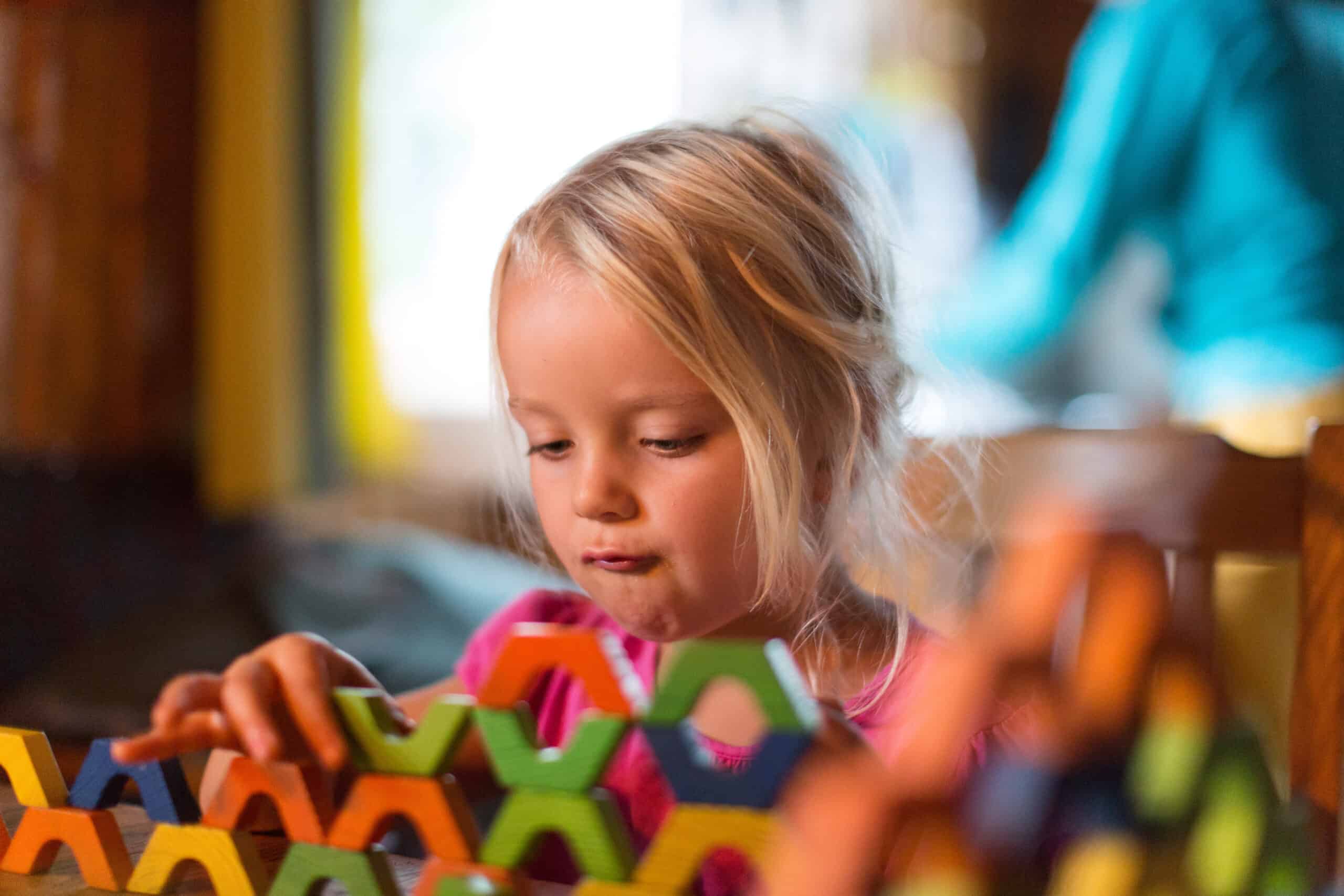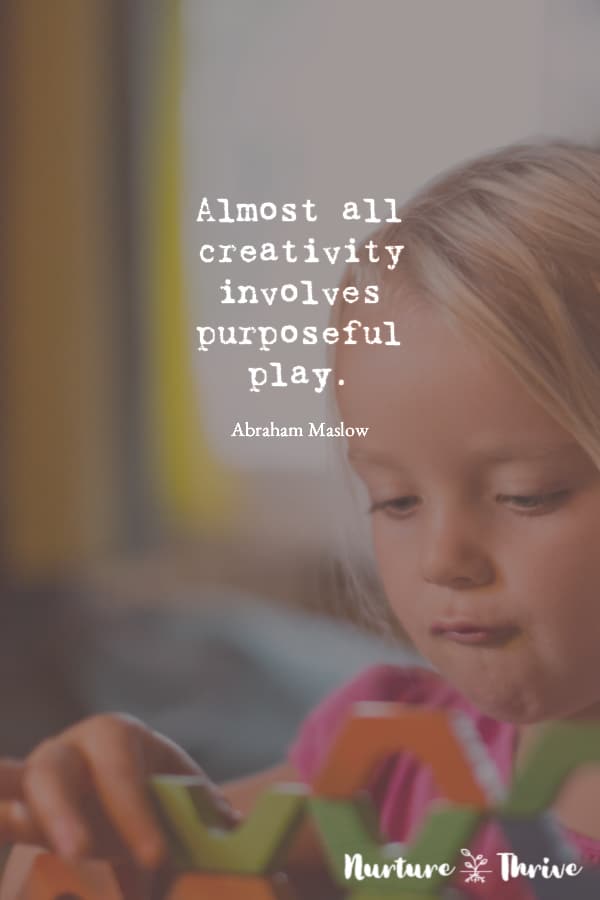Inside: A 5-step action plan for parents to encourage independent and creative play in toddlers. Independent play helps children develop focused attention. Focused attention or the ability to focus on a singular task is an important self-regulation skill that develops across early childhood.
Independent Play in Toddlerhood is Crucial for The Development of Self-Regulation Skills
Focused attention, sometimes known as attention regulation, is the ability to shift and focus attention and blocking out extraneous information when needed.
Focused attention is a skill that takes a long time to mature. We see rudimentary attention focusing babies as young as 4 months, but it isn’t anything like the self-control we have as adults. It is generally thought that self-control is fairly well developed by the age of 5, but the ability to focus attention is not complete at that point. One study even shows that children’s ability to tune out background noise does not reach adult levels until the age of 9 or 10 (1)!
The question is how do children develop attention regulation? There are many ways kids develop attention regulation, but one of the most natural ways is through unstructured free play (2), especially imaginative free play and playing outside (3).

The idea that play leads to better regulation makes good sense.
When children are faced with making decisions in an open situation this stimulates the executive function areas of the brain. Just think about a child trying to build a tower from blocks. The focus on detail and problem solving that goes into that task is the perfect practice for attention regulation.
Related Reading: The Most Important Life Skill to Teach Children: Self-Regulation
The problem is that children today are growing up in a world where their time is more structured and there is less time for free play.
This is why you may hear some experts say that children need to be bored. This is so they can learn to work through scenarios themselves.
Play doesn’t have to be solitary to be beneficial. Children learn so much from imaginary play with adults and with other children.
As a parent, one of the best things you can do for your toddler and preschooler is to encourage them to create imaginary worlds and participate in many kinds of play, including times when they play independently and have to construct the play world and imagination themselves.
Action Plan for Parents: 5 Ways to Encourage Independent and Creative Play in Toddlers and Preschoolers
Here are some tips to encourage both creative and independent play.
1. Start young. Even babies can entertain themselves for a few moments. When this happens, take a step back and enjoy it! Janet Lansbury has a great article on letting babies play independently, read it here. Also, having a great play area for your baby makes all the difference — my Montessori baby play space is set up so babies will be encouraged to explore independently.
2. Limit toys that entertain. From an early age limit the kinds of toys that do all of the entertaining for kids, toys with lots of lights, sounds, and so on. Instead, focus on open-ended toys that can encourage creativity. Blocks, trains, playhouses, play kitchen/food, for example, have endless possibilities for how they can be used and lead to creative and independent play. The more basic the toy to more active the learning that takes place!
3. Play with your child and have set times for them to socialize with others — even better if it is outside. Children play better together outside — even young toddlers will engage in more cooperative play outside. Have you ever taken your kids to the playground only to find them playing restaurant with the mulch on the side? The more creative play happens when natural materials are in abundance — so for your next playdate try meeting at a place that has maybe a playground AND a natural area for more creative play. Sandboxes and water play are also very good for engaging creativity in toddlers and preschoolers.
Related Reading: The Scientific Benefits of Being a ‘Nature Kid’ (and how to get your child to enjoy nature walks!)
4. Have a set time for independent play. Young children thrive on daily routines. The routine can be very flexible, but having some structure helps shape their expectations and prevent meltdowns. For example, since my son dropped his nap we have daily quiet time. During that time he plays on his own in his room. I’ve found that since we started quiet time, his ability to play on his own has grown and he does it more and more throughout the day. I also noticed that during these times that he is most creative.
5. Set up open-ended activities and sensory activities to increase ‘state of flow play’. I find this especially important with younger children (2 and 3-year-olds). I find that putting out some playdough and fun materials to go with the playdough or a playset they haven’t seen in a while will encourage creative play. With younger children sit down and play with them for a few minutes first and then step back and let them play on their own. This is still relevant for older children (4 & 5-year-olds) and is great to stimulate their play, but I do think with older children that not all play should be set up. I want them to see what they can create on their own. Sensory activities like these are great for stimulating independent and creative play!

Developing focused attention is a really important skill and early childhood is a sensitive period for its development. When thinking about your children’s play, think less about what would entertain them and more about what would enable them to create.
Ashley Söderlund, Ph.D.

 How to Organize a Playroom: 5 Tips that Truly Work!
How to Organize a Playroom: 5 Tips that Truly Work!